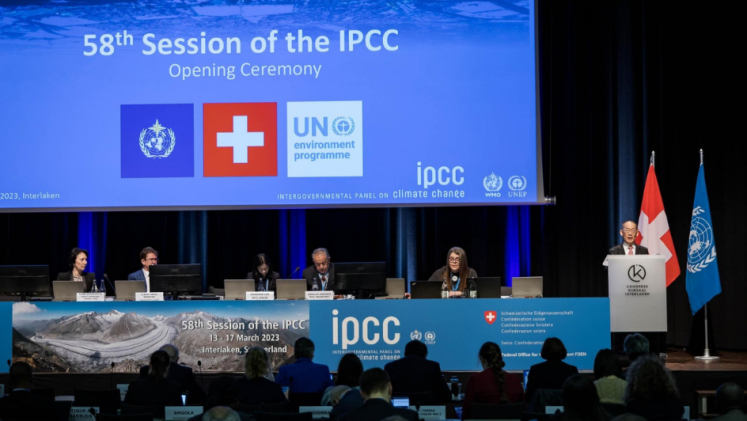The United Nations’ Intergovernmental Panel on Climate Change (IPCC) is tasked with assessing the science related to climate change. Its key findings are compiled into periodic "Assessment Reports" for policymakers and the general public that are published every five to seven years.
IPCC reports play a key role in climate change policy
The IPCC aims to provide governments at all levels with comprehensive and authoritative scientific information on climate change as a basis for policy making. Additionally, the international climate change negotiations heavily rely on IPCC reports as a key input.
IPCC participation is open to all member countries of the World Meteorological Organization and the United Nations
Currently, the IPCC has 195 members. The Panel is composed of member state representatives and meets in PlenarIy Sessions to take major decisions. Furthermore, the IPCC counts three working groups that deal with the scientific aspects of the climate system and climate change, climate change impacts, adaptation and vulnerability, and mitigation of climate change.
Experts from all over the world carry the IPCC
When creating the assessment reports, the IPCC does not conduct its own original research, rather scientists volunteer to assess the available scientific knowledge. These scientists summarize what is known about causes, impacts and possible solutions to global warming. Fundamental components of the IPCC’s process are the multiple rounds of transparent review by experts and governments throughout the world. They ensure a fair and thorough assessment process that includes diverse views and expertise. The assessments are not prescriptive and do not tell policymakers what actions to take.
Special Reports cover specific issues
Working Groups cooperate to deliver Special Reports when additional assessments are requested on a specific issue. During the Sixth Assessment Cycle, three Special Reports were produced, amongst others on global warming of 1.5ºC and on how the climate is affected by the way we use land. In addition to the special reports, the IPCC produces Methodology Reports that provide practical guidelines for the preparation of greenhouse gas inventories.
United we are stronger
The final product of each assessment cycle of the IPCC is the synthesis report, which presents the most important information in an accessible way to policymakers and stakeholders. A unique feature is the painstaking approval process by governments and experts in the presence of observer organizations. The approval process of the IPCC's synthesis report is a critical component of the organization's scientific assessments, and helps to ensure that the report reflects the best available scientific evidence and is a trusted and credible source of information for taking climate action for all.


